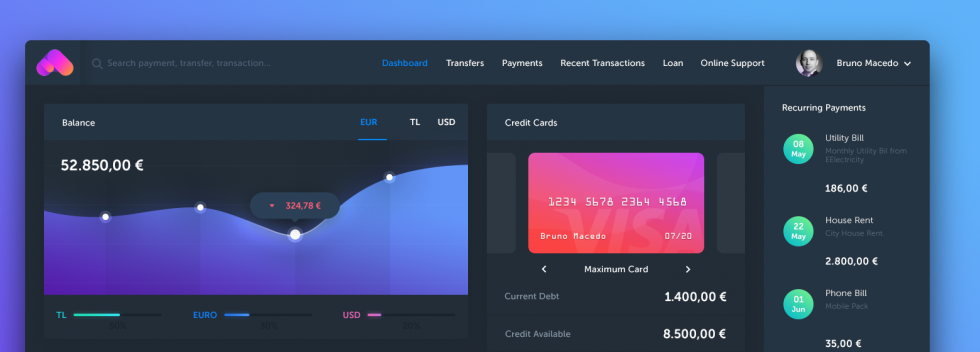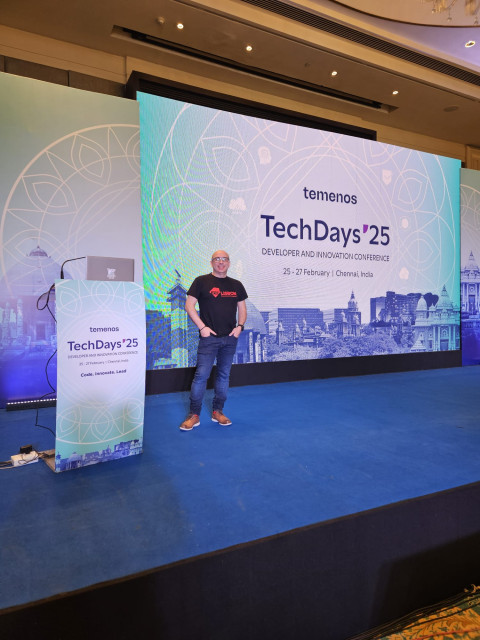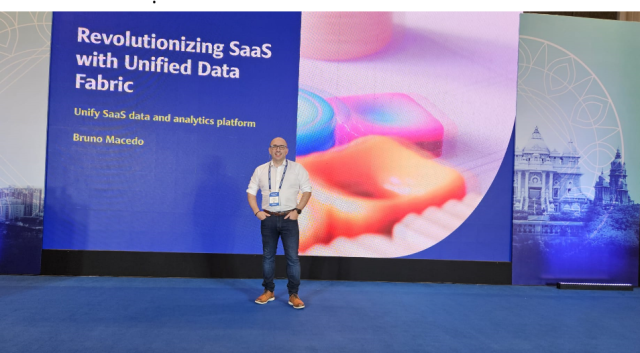

As Chairman of the AI & Data Design Authority at Temenos, I lead the development of advanced AI and ML-powered solutions for the banking sector. With over 24 years of experience in fintech, digital banking, and information systems, I drive comprehensive data digital transformation strategies and integrate diverse components into unified platforms. I'm passionate about innovation and education, lecturing at IDEFE and founding FusionAlgo, a leading augmented intelligence cloud platform. My mission is to leverage technology to create value and drive transformation in the financial industry.
Available For: Advising, Authoring, Consulting, Influencing, Speaking
Travels From: Amsterdam, Netherlands
Speaking Topics: Fintech, Open Banking, Digital Banking, Motivation, Human Augmentation
| Bruno Armindo Esteves Macedo | Points |
|---|---|
| Academic | 5 |
| Author | 17 |
| Influencer | 28 |
| Speaker | 13 |
| Entrepreneur | 0 |
| Total | 63 |
Points based upon Thinkers360 patent-pending algorithm.
 The Switch to a Phygital Bank
The Switch to a Phygital Bank
Tags: Digital Disruption, FinTech, Innovation
 Innovation as a role: following the Fintech path from outside challengers into part of the Bank
Innovation as a role: following the Fintech path from outside challengers into part of the Bank
Tags: Digital Disruption, Innovation, FinTech
 Fintech & Banking The Perfect Storm
Fintech & Banking The Perfect Storm
Tags: FinTech
 Banking as a Service - beyond brick-and-mortar into the future
Banking as a Service - beyond brick-and-mortar into the future
Tags: FinTech, Customer Experience
 Digital banking technology and trends: digitization
Digital banking technology and trends: digitization
Tags: FinTech
 After more than half year of GDPR and PSD2, are banks “there yet”?
After more than half year of GDPR and PSD2, are banks “there yet”?
Tags: Cybersecurity, FinTech, Privacy
Tags: Blockchain, FinTech, Innovation
Tags: Cloud, FinTech, Innovation
 Revolutionizing Organizational AI: Unlocking the Potential of Microsoft Copilot
Revolutionizing Organizational AI: Unlocking the Potential of Microsoft Copilot
Tags: Agentic AI, AI, FinTech
 Revolutionizing SaaS Unified Data anb AI | Microsoft Fabric
Revolutionizing SaaS Unified Data anb AI | Microsoft Fabric
Tags: AI, FinTech, IT Strategy
 The Switch to a Phygital Bank
The Switch to a Phygital Bank
Innovation in Banking and Fintech is something amazing to embrace these days. Consumers around the world have changed the way they discover products, the way they buy and how they experience the products and services thanks to the Big Tech companies, their new technologies, innovative business models and disruptive brands. The general-purpose technologies behind the Fintech revolution have followed these trends and proved their value. Financial disruption has drastically altered societies, pre-existing economic and social structures. As for Banks & Financial Institutions (BFIs), to adapt to the Fintech revolution and the age of Open-Banking, artificial intelligence, machine learning, cognitive learning and other disruptive GPTs is a challenging task. They need not only to adapt to current times, but also to strive for leadership through innovation to match these new consumers, which makes it even harder to keep up.
Understanding and adapting to this new type of consumer connection is crucial and to be able to keep up with it (BFIs) need a shift to a phygital approach. They need to connect their online and offline worlds in a way that will allow them to create closer, more efficient, and more human customer experiences. A phygital approach is a new type of corporate innovation strategy that can pull (BFIs) industry legacy experience strengths but still be able to perceive and address their new market resulting “weaknesses” by:
BFI’s have also to take into account that this massive revolution has brought and keeps bringing new players into the market like Neo Banks, FinTech Startups, TechFin Giants (GAFA), Mobile Network Operators. All of them have strong arguments to compete and disrupt. Therefore BFI’s need to find partners that can orchestrate their business strategy to not only take a digital leap that can bring them into a phygital version of themselves, but also to support them into thriving through continuous innovation and reinvention of their financial services. This version will then take the best components from the digital retail experience like immediacy, immersion, and speed and the chance to interact with people, the product and adapt those learnings to revolutionize also their brick-and-mortar experience.
#fintech #banking #openbanking #fusionalgo #temenos #multifonds #p2pfintech #thinkers360 #payments #corebanking #funds #crypto
Tags: Blockchain, Cloud, FinTech
 Revolutionizing Organizational AI: Unlocking the Potential of Microsoft Copilot
Revolutionizing Organizational AI: Unlocking the Potential of Microsoft Copilot Revolutionizing SaaS Unified Data anb AI | Microsoft Fabric
Revolutionizing SaaS Unified Data anb AI | Microsoft Fabric